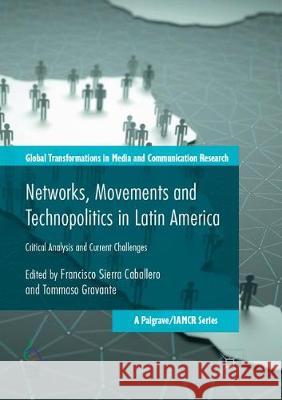Networks, Movements and Technopolitics in Latin America: Critical Analysis and Current Challenges » książka
topmenu
Networks, Movements and Technopolitics in Latin America: Critical Analysis and Current Challenges
ISBN-13: 9783319880549 / Angielski / Miękka / 2018 / 223 str.
Kategorie:
Kategorie BISAC:
Wydawca:
Palgrave MacMillan
Seria wydawnicza:
Język:
Angielski
ISBN-13:
9783319880549
Rok wydania:
2018
Wydanie:
Softcover Repri
Ilość stron:
223
Oprawa:
Miękka
Wolumenów:
01
Dodatkowe informacje:
Wydanie ilustrowane











